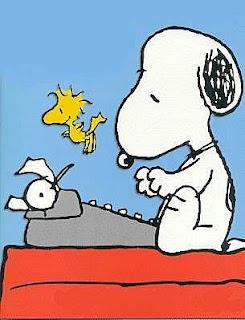Delusions of Verbosity
There is a sizable population of readers, American readers in particular, that seem to feel that all story ideas need to be long. Everything must be exactly spelled out less the reader feel gypped.
But you know what? The things that really make a story memorable are the things that aren't said. Pride and Prejudice? Women for all time are haunted by the fantasy of being married to Mr. Darcy. Lord of the Rings? Imagining the epic battles unfolding before you (which is why the movies were so popular).
In both of these cases the authors laid out the framework and left it to your imagination to take it the rest of the way. Spelling out the adventure would have actually ruined the story.
Adding more words doesn't always fix storytelling problems. The trick is making sure that the words you do add are the right words.
But you know what? The things that really make a story memorable are the things that aren't said. Pride and Prejudice? Women for all time are haunted by the fantasy of being married to Mr. Darcy. Lord of the Rings? Imagining the epic battles unfolding before you (which is why the movies were so popular).
In both of these cases the authors laid out the framework and left it to your imagination to take it the rest of the way. Spelling out the adventure would have actually ruined the story.
Adding more words doesn't always fix storytelling problems. The trick is making sure that the words you do add are the right words.

Hmm, I put some free e-stories up on Amazon etc a while ago to judge readers views on something I was writing a series of novellas out of. It did have deliberate ambiguities and some things were left open. As you said I got reviews that complained about these as annoying, where I intended it to be more mysterious and imagination-firing.
ReplyDeleteHaving said that I think it’s probably up to me to fill in the gaps they didn’t like, so as not to have a reader feeling confused or lost. On the other hand I think a lot of current books, especially those read predominantly by younger people, do make sure all ambiguities are thoroughly eliminated, and lead the reader through the story far more that is my personal taste.
My all time favourite ‘classic children’s book’ Alice in wonderland, didn’t do this…
So, just when is a Raven like a Writing desk?
It's a tricky balance that needs to be experimented with. I've read lots of short stories (on my own time and reviewing here on the blog) and one thing I've noticed is that authors often mistake intentional ambiguity with incompleteness. Like there's a big difference between cutting off mid action to create an effect and just cutting off too soon. There has to be *just* enough pieces for the reader to put things together.
DeleteWhat I found helped me with this is beta reading. Because I too like messing around with this type of ending. I'm still no expert but having a group of beta readers helped me to notice reoccurring problems with my writing.
I've done the free story thing as well and it's just not as effective. I got reviews but many times it was from people that were not my target audience or had never even read a short story before so they were expecting a novel.